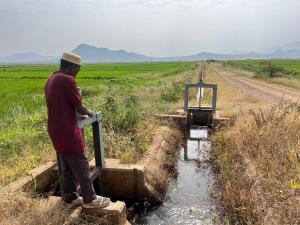Test project Pesticides and Protection Tanzania
testing out building a project
pece_annotation_1475465306
seanw146This article presents an argument for “compassion protocol” by examining what France has done—provide citizenship to immigrants who are not and suffer from a serious medical problem so that they can take advantage of full benefits of the healthcare system. This goes along with the larger theme of the difficulties in placing value on the lives of people who need care and weighing the costs of distributing that precious resource.
pece_annotation_1476076439
seanw146Dr. Vincanne Adams is the “Former Director (2000-2012) and Vice-Chair, Medical Anthropology, Department of Anthropology, History and Social Medicine (joint program with UC Berkeley Anthropology). Areas of research and publication include: Global Health, Asian Medical Systems, Social Theory, Critical Medical Anthropology, Sexuality and Gender, Safe Motherhood, Disaster Recovery, Tibet, Nepal, China and the US.”
Taslim van Hattum is a Director at the Maternal & Child Health Portfolio at The Louisiana Public Health Insitute, part of the Greater New Orleans Area Hospital & Health Care, and studied at the Louisiana Public Health Institute as well as the Tulane University School of Public Health and Tropical Medicine.
Dr. Diana Bianchi is the director of the Eunice Kennedy Shriver National Institute of Child Health and Human Development with experience in prenatal geneticist, pediatrics, and obstetrics.
pece_annotation_1477270956
seanw146The functions are provide through the website and app.
pece_annotation_1478468977
seanw146Doctor Adriana Petryna holds a Ph.D in Anthropology from the University of California, Berkeley. She holds an M.A. in Anthropology as well as a B.S. in Architecture from the University of Michigan.
“…I have investigated the cultural and political dimensions of science and medicine in eastern Europe and in the United States (with a focus on the Chernobyl nuclear disaster and on clinical research and pharmaceutical globalization). My concerns center on public and private forms of scientific knowledge production, as well as on the role of science and technology in public policy (particularly in contexts of crisis, inequality, and political transition). I probe the social nature of scientific knowledge, how populations are enrolled in scientific experimentation, and what becomes of citizenship and ethics in that process. The anthropological method involves charting the lives of individuals and institutions over time through interviews, participation-observation, and comparative analysis. It illuminates fine-grained realities that are often more nuanced than those described by policy makers or captured in controlled experiments. The anthropological scrutiny of large-scale political and medical change always entails attending to how ordinary people—often encountering bewildering and overburdened systems—cobble together resources to protect their health and citizenship.” – from the University of Pennsylvania bio.



the rice irrigation scheme, Pare Valley, Tanzania